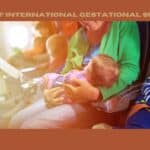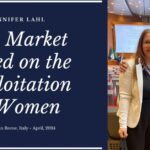I attended a conference in Atlanta this month titled “Beings2015: Biotech and the Ethical Imagination.” During the main sessions, much was discussed regarding CRISPR, or what is more commonly known as gene editing. “Beings2015” convened to discuss how biotech should proceed and who should regulate advances like CRISPR in order to draft a statement of consensus on such issues. These are big goals for a group of probably less than 200 people.
For a brief primer on CRISPR-Cas9 genome editing, I found this clip quite helpful.
At “Beings2015” we heard from Harvard Professor Steven Pinker, who challenged the audience to “stay out of the way” of biotechnological advances. I found myself more comforted when Margaret Atwood said the people at the conference were too nice and should hire some criminals and Hollywood script writers to imagine disasters that might result from biotechnology gone wrong.
CRISPR-Cas9 raises the question, if we can edit diseased genes out of the genome, what’s to stop us from editing any gene? Under such a scenario, designer embryos move quickly from fiction to fact.
The White House has just weighed into the CRISPR-Cas9 debate. Dr. John Holdren, Assistant to the President for Science and Technology posted a White House statement on Genome Editing. The troublesome line is this: “The Administration believes that altering the human germline for clinical purposes is a line that should not be crossed at this time.”
Did you catch that? At. This. Time.
We should imagine disaster and establish a policy that states clearly this line should not be crossed at any time. At. Any. Time.
Author Profile

- Jennifer Lahl, MA, BSN, RN, is founder and president of The Center for Bioethics and Culture Network. Lahl couples her 25 years of experience as a pediatric critical care nurse, a hospital administrator, and a senior-level nursing manager with a deep passion to speak for those who have no voice. Lahl’s writings have appeared in various publications including Cambridge University Press, the San Francisco Chronicle, the Dallas Morning News, and the American Journal of Bioethics. As a field expert, she is routinely interviewed on radio and television including ABC, CBS, PBS, and NPR. She is also called upon to speak alongside lawmakers and members of the scientific community, even being invited to speak to members of the European Parliament in Brussels to address issues of egg trafficking; she has three times addressed the United Nations during the Commission on the Status of Women on egg and womb trafficking.
Latest entries
 BioethicsMay 16, 2024The Ethics of Transplantation Medicine
BioethicsMay 16, 2024The Ethics of Transplantation Medicine infertilityApril 23, 2024The Rise of International Gestational Surrogacy in the U.S.
infertilityApril 23, 2024The Rise of International Gestational Surrogacy in the U.S. Assisted Reproductive TechnologyApril 16, 2024Founder Jennifer Lahl’s Speech on Surrogacy to the Casablanca Declaration
Assisted Reproductive TechnologyApril 16, 2024Founder Jennifer Lahl’s Speech on Surrogacy to the Casablanca Declaration #BigFertilityFebruary 27, 2024No, Alabama Didn’t Ban IVF
#BigFertilityFebruary 27, 2024No, Alabama Didn’t Ban IVF

